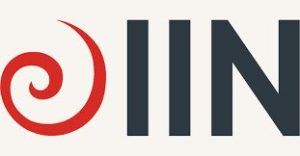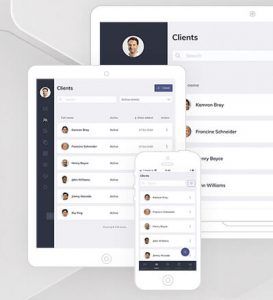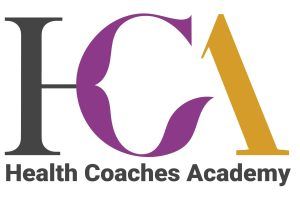
5 Best Wellness & Health Coaching Certification Programs
To become a coach, your first step would be to look into health coaching certification or wellness coaching certification. Health and wellness coaches complete rigorous training to become certified practitioners.
This article explains how you can become a health and wellness coach, outlines the best wellness and health coaching programs, and explains how to start your wellness or health coaching business and optimize delivery using the best digital coaching tools.
Before you continue, we thought you might like to download our three Goal Achievement Exercises for free. These detailed, science-based exercises will help you or your clients create actionable goals and master techniques to create lasting behavior change.
This Article Contains
- How to Become a Health and Wellness Coach
- 5 Best Health Coaching Certification Programs
- How to Start Your Health Coaching Business
- Best Digital Software & Platform for Your Practice
- 12 Ways You Can Use Quenza for Health Coaching
- Best Wellness Coaching Tools From PositivePsychology.com
- A Take-Home Message
- References
How to Become a Health and Wellness Coach
Health and wellbeing coaches are nonclinical holistic practitioners who support their clients in making behavioral changes to meet their personal health goals (Normand & Bober, 2020).
Many practicing wellness and health coaches are allied health professionals, personal trainers, holistic and complementary therapists, or sports coaches. They may then take additional coaching training in wellness and health coaching to become a certified practitioner (Thom et al., 2016).
You don’t need any specific qualification to enter most training programs; however, you need a keen interest and passion for health and wellness to set a good example to your future clients (Huffman, 2016). You have to “walk the talk!” If this sounds like something that interests you and plays to your strengths, then follow our guide on health coaching certification programs.
Qualifications of health coaches
You will find health and wellness coaches with a range of qualifications, from PhDs and professional master’s degrees to bachelor’s degrees and certificates (Thom et al., 2016).
Some health coaches specialize in working with a particular demographic, such as pregnant women and postpartum mothers, clients with specific conditions like arthritis, or individuals looking for weight loss coaching. Others offer more generic services (NHS, 2023).
If you are qualified in a core or allied health profession as a personal trainer, fitness instructor, or holistic or complementary medicine practitioner, then you will stand a better chance of building a successful business in this increasingly competitive marketplace (Perlman & Abu Dabrh, 2020).
5 Best Health Coaching Certification Programs
You may feel overwhelmed by the wealth of information available once you search for information on the best health coaching certification programs. Don’t worry! Help is at hand with our carefully curated guide to the best programs on offer.
All the programs listed are delivered online using a blend of interactive and asynchronous learning so that you can fit the training around your existing schedule. Each program listed has been linked to the provider’s website for you to delve deeper if you want to. All the coaching certification programs have been approved by the UK and International Health Coaches Association (UKIHCA).
These five programs provide outlines of the best certifications on offer, but there are alternative options to consider listed on the UKIHCA website.
1. Institute for Integrative Nutrition (IIN)

They offer a range of coaching courses in holistic health practices, including their flagship Health Coach Training Program. The majority of the world’s most famous and successful health and wellness coaches are graduates of this program.
IIN has established partnerships with other health and wellbeing organizations like Chopra Global. To date, the IIN has trained over 160,000 coaches and teachers from 175 countries through its health coach training platform.
The course comprises 41 modules and takes either six or 12 months online, delivered through immersive learning that combines asynchronous and synchronous interactive training methods. You can see more by visiting their website and listening to visiting faculty describe IIN’s learning objectives in the video below.
2. College of Naturopathic Medicine (CNM)

CNM says its mission is to provide practice-based training in a range of natural and complementary therapies and health coaching. This could be an ideal option if you’re already a qualified holistic or complementary therapist.
The online program is delivered over six to 10 months, while the campus-based training takes 10 months. Both programs have the same content and consist of five parts:
- How the body works
- Nutrition and health
- Fitness and health
- Business, promotion, and marketing
- Coaching and health
You can learn more by looking at their website and downloadable free guide and watch the useful introductory video below.
3. The Institute of Functional Medicine (IFM)

The IFM health coaching certification is a good choice for qualified health professionals seeking to add value to their practice by offering health coaching.
Functional medicine health coaches help their clients cultivate personal responsibility and tap into their innate strengths to meet their personal health and wellness goals.
They combine educational and mentoring skills with positive psychology to motivate clients and help them sustain long-term changes in behavior to support better health. The curriculum is delivered online over one year and includes classes on functional medicine principles, mind–body medicine, positive psychology coaching techniques, nutrition and meal planning, and the psychology of eating.
Find out more about their certification program.
4. Health Coaches Academy
The Health Coaches Academy offers a flexible part-time diploma in health coaching over a year in six intakes a year. It comprises 600 learning hours, with 120 of them delivered live.
The program is delivered online through a blend of live webinars and workshops, weekly mentoring, coaching clinics, and short videos and presentations in their online academy.
There are six intakes a year, and student groups are no bigger than 18 per intake, meaning everyone has a chance to contribute and interact during their learning experience.
You can visit their website and download their free guide to current research into the effectiveness of health and wellness coaching as an intervention in a range of conditions and health problems, from chronic pain to weight loss, fatigue, and kidney disease.
5. Well College Global
Well College Global offers a range of coaching qualifications in health and wellness coaching that are accredited by multiple coaching bodies.
Their Level 5 Diploma in Nutrition & Health Coaching provides students with the knowledge and tools they will need to empower coaching clients to overcome challenges to reaching their health and wellness goals. The program is offered by blended learning online in 200 hours of interactive classes. The course is self-paced and can be taken over a time frame to suit you.
It comprises five compulsory modules: psychology and wellbeing, nutrition, physical and mental health and trauma awareness, wellbeing management and coaching practices, and the coaching practicum.
You also have to choose three elective modules from the following to help you create your coaching niche: the gut and microbiome, women’s health and hormones, Ayurvedic nutrition and lifestyle, superfoods and nutrition, non-diet approach to coaching, nutrition psychology and food choices, sports nutrition for optimal performance, and botanical healing as an introduction to herbal medicine.
Find out more by downloading the pdf guide to the diploma and by visiting their website.
How to Start Your Health Coaching Business
The following six-step model (plus one bonus tip) for building your coaching business is based on a health and wellness coaching framework recommended by Nudge Coach (Gambil, 2023).
1. Identify your target market
Many coaching practices struggle when they try to market a broad one-size-fits-all offer. You need to identify your niche. Reflect on your own health practices, hobbies, or interests to find a niche you can easily identify with.
Are you a member of a long-distance running club? You could focus on athletes. Are you a divorcee? Perhaps you could identify with other single parents who struggle with a healthy lifestyle. Have you always been an avid nature lover? Maybe botanical healing is the niche for you. With some self-reflection, you’ll be able to decide on your niche market.
2. Identify how your offer fits into your coaching model
Once you have identified your niche, you need to identify your goal AND the economic rationale to ensure it’s viable. Typically, it’s wise to try to strike a balance between increasing lifetime value and increasing revenue. You want to keep clients while making a decent living.
3. Define your role and responsibilities
You can either run a coaching business as a solo entrepreneur or partner with another coach or coaches and start a practice. This would depend on your preferred business model but could include a referral agreement with a trusted health coach, sports coach, or nutritionist.
In any case, your coaching model should include these four stages:
- Client qualification – ensure your clients are in an appropriate stage of readiness
- Introduction and onboarding
- Ongoing content delivery, data capture, and feedback
- Assessments to evaluate clients’ progress
4. Begin your coaching process with client data collection
Everyone taking up coaching expects a return on their investment by achieving a cherished health goal, like losing weight, feeling better, running a marathon, etc. It’s important to lay a foundation that enables you to illustrate client progress.
Digital coaching tools like Quenza can help you achieve this. Collecting data upfront from your clients and setting goals that play to their strengths ensures the following:
- You can demonstrate your knowledge in the field.
- You have a benchmark to measure progress.
- Client results are tangible, and they have a return on their investment.
5. Select the right technology to simplify data collection and follow-up
Ultimately, most coaches use some type of online coaching platform to streamline sifting through data, sharing content, and providing feedback. There are multiple systems available that can add value to your service, but they vary in functionality and complexity.
You should choose the right coaching app to support your client experience, so select a platform that fits your process and the experience you have mapped out for your clients.
6. Develop an accountability strategy based on regular, concise “nudges”
The value of your coaching service is based on the perceived value you offer your clients. Your blog, book, and worksheets can only enhance that. Therefore, you need to build value in your clients’ eyes with a clear communication strategy that keeps them on track.
This should include two key features:
- Set expectations. Let clients know the frequency and purpose of ongoing communication.
- Keep it brief. Your nudges and feedback should be concise. Keep most correspondence to one to three sentences and ensure it’s easy to respond to.
7. Read this book
With an ever-growing selection of excellent books about coaching, building a business, finding clients, and marketing, picking the right book becomes a mind-numbing challenge.
Not so with our recommendation, as it was written with budding coaches in mind. Our cofounder, Seph Fontane Pennock, compiled this excellent guide based on years of research and close collaboration with coaches and therapists.
The book, The 7 Pillars of Profitable Practice, is the ultimate guide in helping you set up your practice and answers all the questions you have throughout its well-designed layout. If you only have time to read one book, this should be it.
Best Digital Software & Platform for Your Practice

Whatever platform you choose, it should include the following key features:
- Administrative tools for drafting contracts, invoicing, and scheduling meetings
- Remote communication tools for text messaging, chat, and video calls
- Data monitoring and analysis to measure individual progress toward goals and nudge clients to take their next steps
- Content delivery tools to provide activities, interactive classes, training modules, and presentations
- iOS and Android compatibility
- Data security (all processes should be encrypted and HIPAA and/or GDPR compliant to ensure your clients’ confidentiality and information security)
12 Ways You Can Use Quenza for Health Coaching

The cofounders of PositivePsychology.com and leading therapists and coaches developed it, seeing the need for a holistic application.
Quenza includes the following features that will optimize the delivery, maintenance, and monitoring of your health and wellness coaching practice.
- The activity builder lets you create exercises, homework assignments, assessments, and online learning content and save them to your personal library.
- The pathway builder lets you design a fully automated series of activities and send them to your clients. You can automate your intake process, onboarding, progress tracking, and follow-up by scheduling activities with automatic reminders.
- The expansion library is a premade library of science-based activities and pathways that practitioners love using with their clients. No time to build your own activities or pathways? No problem!
- The client app helps you boost client engagement by notifying them every time you send out an activity, producing a personal to-do list for each client of unfinished activities, automated reminders of overdue activities (in app or via email), and a portfolio of completed activities for clients to download as pdfs.
- The tracking feature allows you to monitor and manage your clients’ results and responses and produces beautifully styled pdfs of completed activities ready for download.
- The documentation feature lets you save, share, and comment on client notes. Clients can also use this feature for journaling, reflection, or anything that comes up and share their entries with you.
- The chat feature lets you communicate safely using fully encrypted messaging with your clients, either as individuals or in groups. You can also export chats to pdf for later reference.
- The group feature allows the bulk import of clients in groups of up to 50. You can then chat with and send out activities and pathways to groups, and clients can interact with each other. You can also export group results to pdfs for later reference.
- The files feature allows you to store all your practice documentation, audio, and video in one place within Quenza. You can share files with your clients, and clients can upload and share their files with you. This keeps your practice organized.
- Quenza’s white label means you can customize everything. Add your own logo, choose your own brand color, and choose how you want to appear to clients.
- With the translation feature, you can choose your client app in their preferred language. Quenza currently supports Danish, English, German, Greek, Spanish, Finnish, French, Hindi, Italian, Norwegian, Dutch, Polish, Portuguese, Romanian, Russian, Swedish, and Turkish.
- The security feature ensures that everything you do is secure and encrypted. You can use a personal PIN code for an extra layer of security. All data is stored with industry-leading AES-256 encryption.
Find out more by signing up for a $1 one-month trial subscription.
Best Wellness Coaching Tools From PositivePsychology.com
PositivePsychology.com has a range of resources to support you in your health and wellness coaching practice.
First, look at our related article that includes links to many free tools and templates: Health Coaching: Your Ultimate Template Toolkit for Success.
You can also download our free goal achievement pack and try out the powerful tools included. Some examples are:
- Realizing Long-Lasting Change by Setting Process Goals
Setting and working toward goals is a powerful technique for behavioral change. - Goal Visualization
Visualizing our goals using all five senses can help motivate us to make the changes required to adopt a healthier lifestyle.
You can also download the following free worksheets.
This Past, Current, and Future Strengths worksheet can help you identify your client’s strengths and how to apply them to set cherished health and wellness goals.
This 14-Day Commitment Tool helps you and your client track health-related behaviors over a two-week period. This can be used to establish a baseline of behavior to help set realistic and achievable goals that can be periodically adjusted as your client makes changes in their behavior.
Finally, why not invest in some of our best science-based behavioral change tools? Try our 17 Motivation & Goal Achievement Exercises to help your clients get motivated, stay on track, and achieve their health and wellness goals.
A Take-Home Message
Health and wellness coaches are holistic behavioral change experts with a diverse skill set depending on their particular specialty or niche.
Health and wellness coaching is an expanding industry that is experiencing increasing demand from individual clients, health centers, and employers looking to keep their workforce healthy and productive. It has taken off recently following the global COVID-19 pandemic and increased awareness that keeping fit is a great way to prevent and minimize health problems of all kinds.
We hope you found this guide to wellness and health coaching certification useful and that it will be a great aid in setting up a wellness coaching practice. If you have any other tips you’d like to share, let us know in the comments.
We hope you enjoyed reading this article. Don’t forget to download our three Goal Achievement Exercises for free.
- Gambill, M. (2023) 6 Steps to start an online health coaching business. Inside Nudge Coach. https://nudgecoach.com/blog/6-steps-to-launch-a-profitable-lifestyle-program-in-your-practice.
- Huffman, M. H. (2016). Advancing the practice of health coaching: Differentiation from wellness coaching. Workplace Health & Safety, 64(9), 400–403.
- NHS. (2023). Workforce development framework for health and wellbeing coaches. https://www.england.nhs.uk/publication/workforce-development-framework-health-and-wellbeing-coaches/.
- Normand, M. P., & Bober, J. (2020). Health coaching by behavior analysts in practice: How and why. Behavior Analysis: Research and Practice, 20(2), 108–119.
- Perlman, A. I., & Abu Dabrh, A. M. (2020). Health and wellness coaching in serving the needs of today’s patients: A primer for healthcare professionals. Global Advances in Health and Medicine, 21(9).
- Thom, D. H., Wolf, J., Gardner, H., DeVore, D., Lin, M., Ma, A., Ibarra-Castro, A., & Saba, G. A. (2016). Qualitative study of how health coaches support patients in making health-related decisions and behavioral changes. Annals of Family Medicine, 14(6), 509–516.
Let us know your thoughts
Read other articles by their category
- Body & Brain (49)
- Coaching & Application (57)
- Compassion (26)
- Counseling (51)
- Emotional Intelligence (24)
- Gratitude (18)
- Grief & Bereavement (21)
- Happiness & SWB (40)
- Meaning & Values (26)
- Meditation (20)
- Mindfulness (45)
- Motivation & Goals (45)
- Optimism & Mindset (34)
- Positive CBT (29)
- Positive Communication (20)
- Positive Education (47)
- Positive Emotions (32)
- Positive Leadership (18)
- Positive Parenting (4)
- Positive Psychology (33)
- Positive Workplace (37)
- Productivity (17)
- Relationships (46)
- Resilience & Coping (36)
- Self Awareness (21)
- Self Esteem (38)
- Strengths & Virtues (32)
- Stress & Burnout Prevention (34)
- Theory & Books (46)
- Therapy Exercises (37)
- Types of Therapy (64)








What our readers think
I do not recommend the Institute of Functional Medicine (Health) Coaching Academy. It is a one year program and the most expensive. I’m taking it hoping to learn a bit about functional medicine as well as health coaching. However, so far, I haven’t learned much. The structure of the program, the syllabus and especially the online content is very confusing, even for a former professional in the scientific field. We were told it takes 3 months to get used to it. That is a very long learning curve. That is not acceptable. Classmates I spoke to are still struggling to grasp the online content organization. The program should be clear what is required for the boards and what is required for the weekly live practical sessions. The content is unnecessarily complicated. We don’t know the sequence and what is critical study. I suspect this who pass the boards, do so because of independent study and board prep courses, not because of this program. Also, the endorsements are by professionals who have a financial stake in the program.
Nice blog. Thanks for sharing.